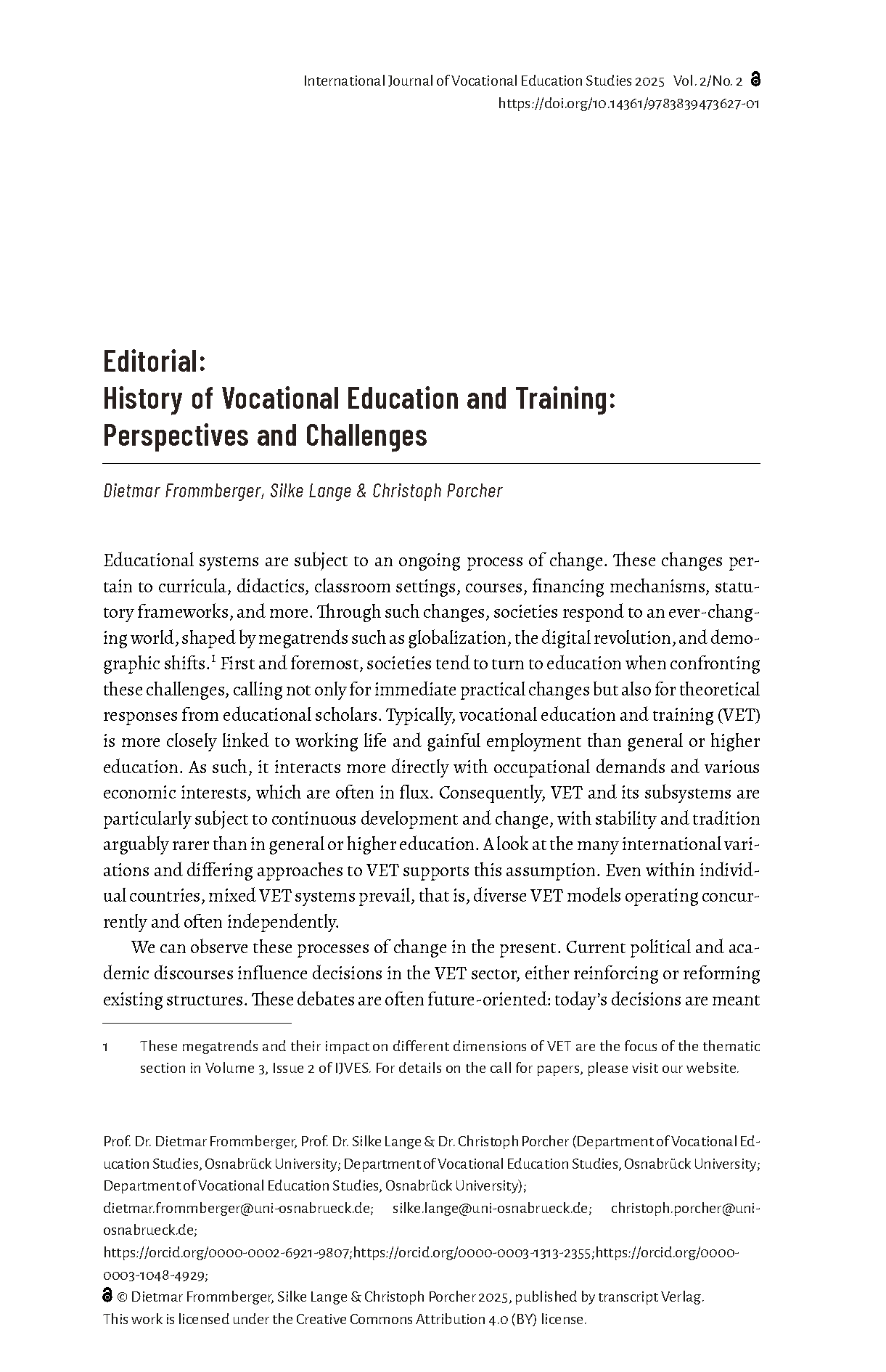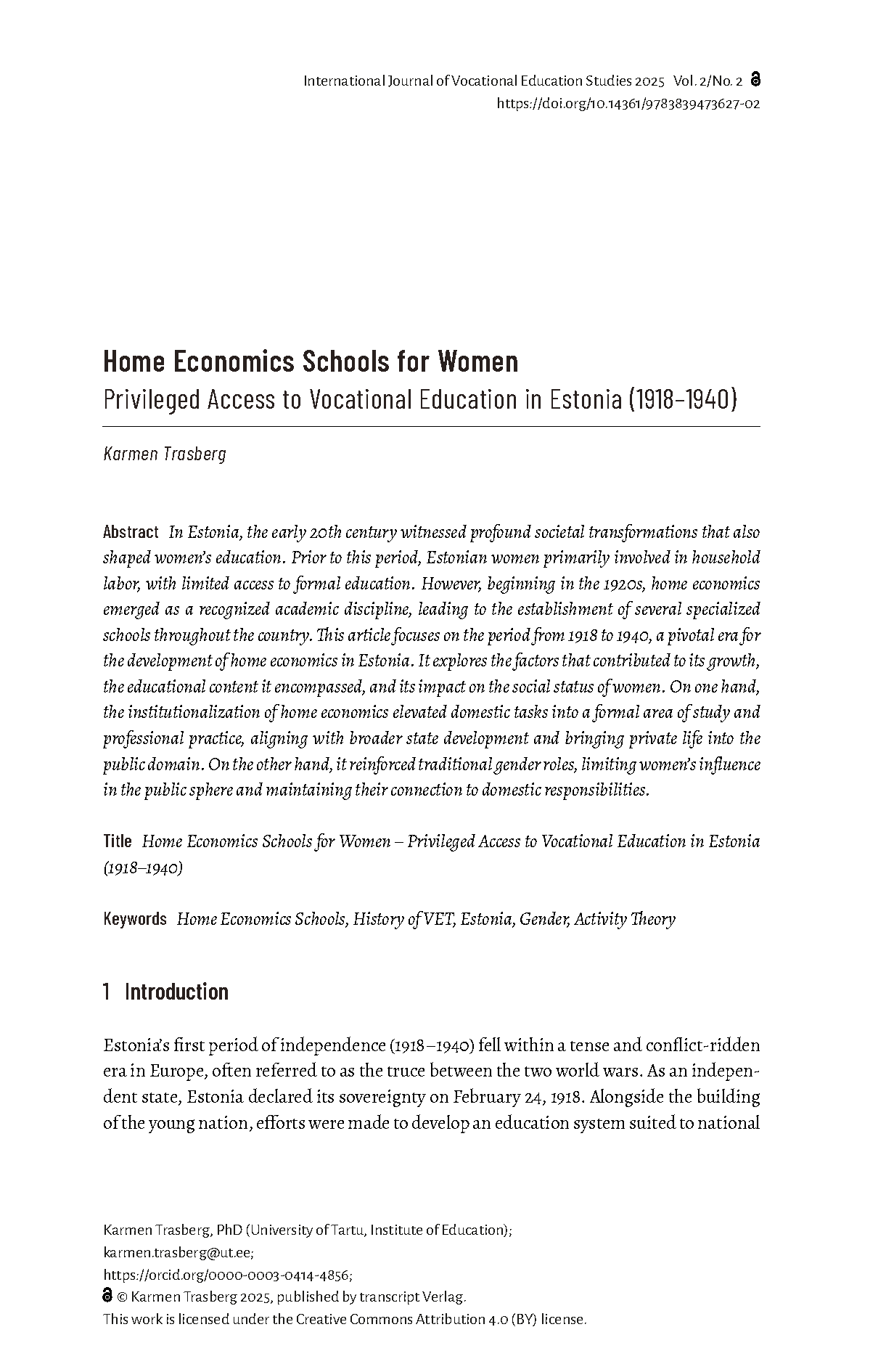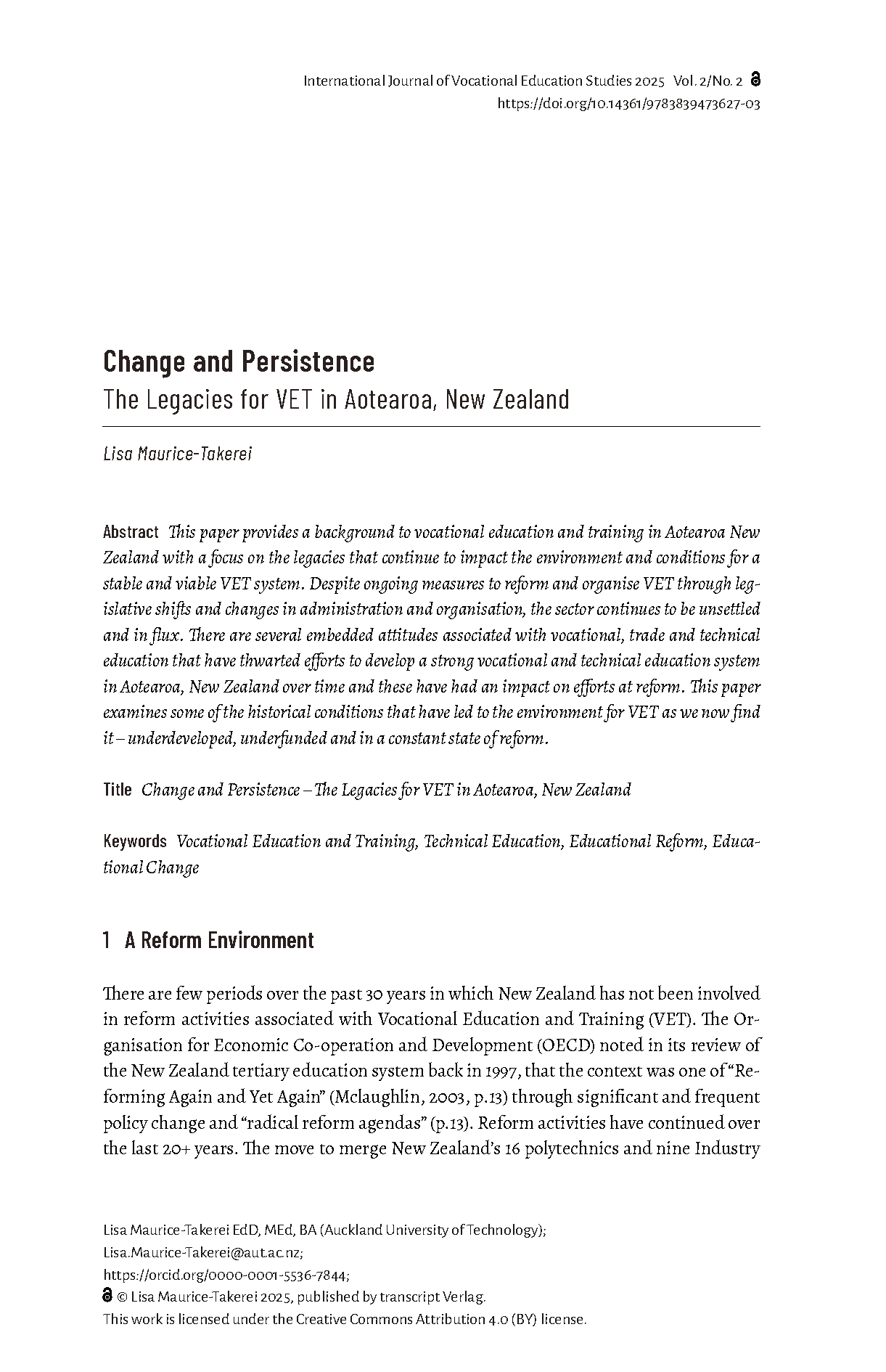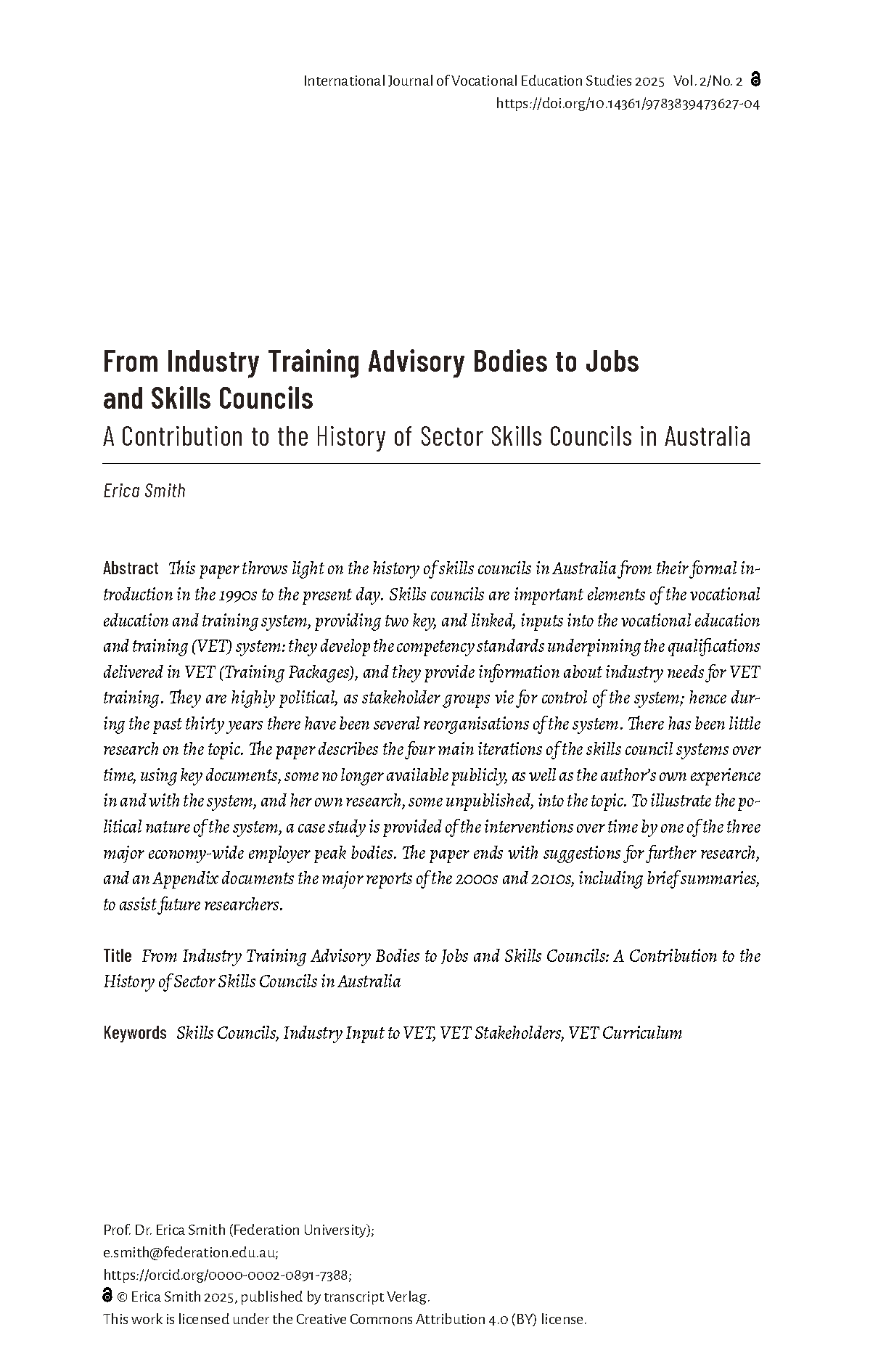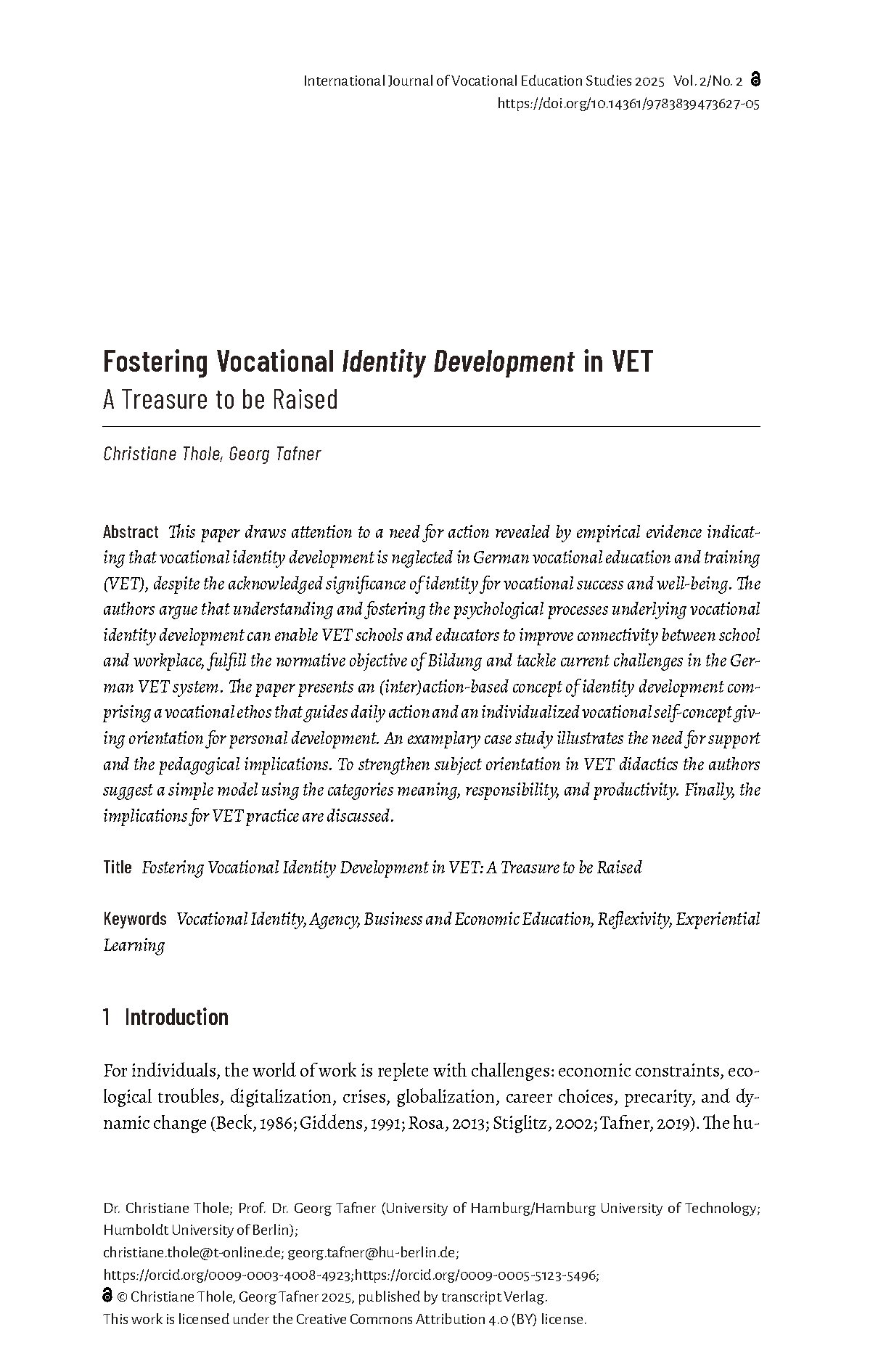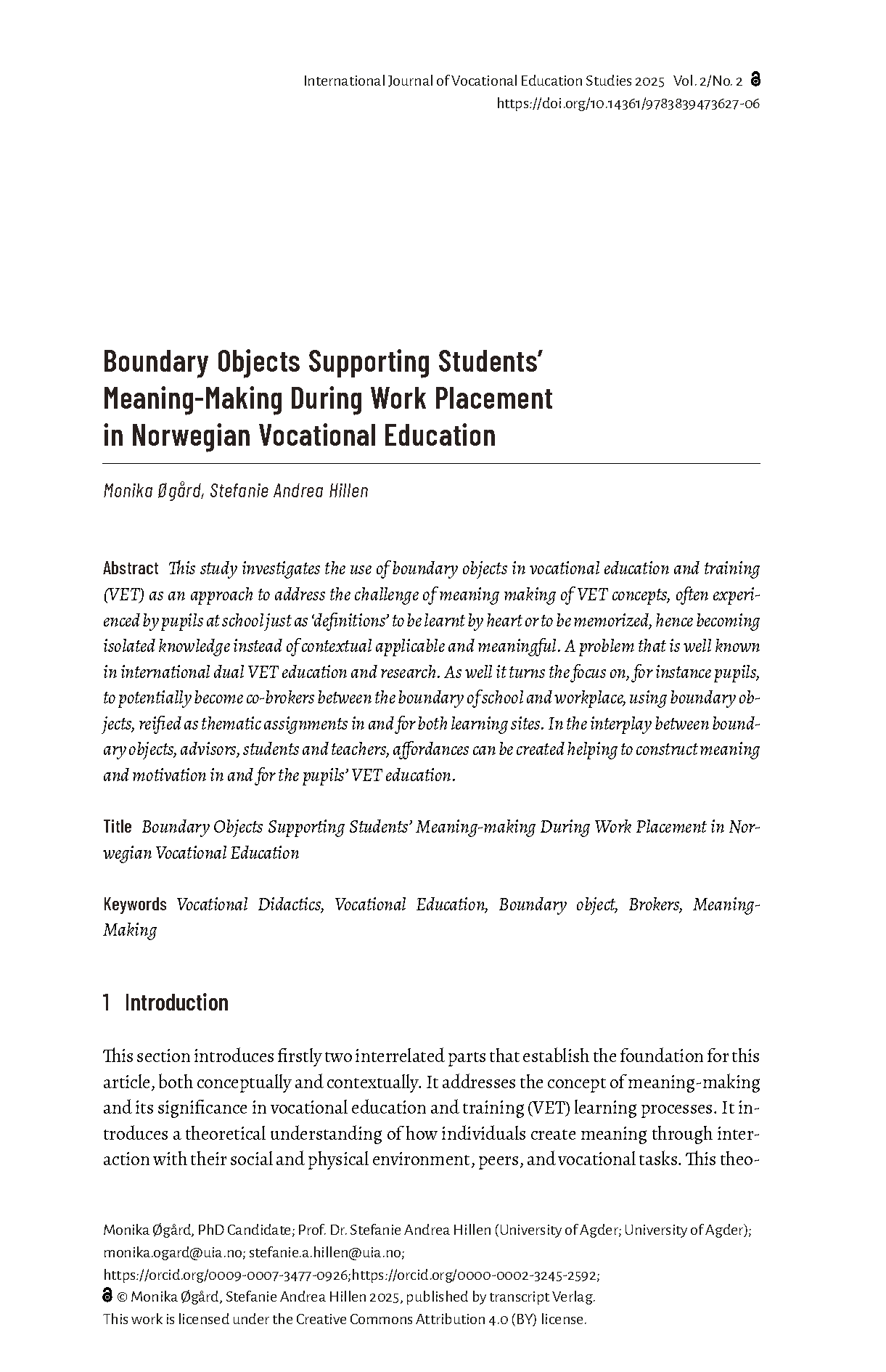The International Journal of Vocational Education Studies (IJVES) publishes current findings on vocational education and training (VET), focusing on the analysis and further development of VET. The journal aims to strengthen the international academic exchange of selected research results from different countries, thereby networking the international community. The journal and its articles are intended for the academic community as well as decision-makers in the field of VET. The goal is to make research results from vocational education studies accessible to an international audience and to inform about current developments in VET. The journal acknowledges that VET in different countries is studied not only from an educational perspective but also from other disciplines, such as political science, sociology, and economics.
Vol 2 No 2 (2025): Focus: History of Vocational Education and Training
The International Journal of Vocational Education Studies invites readers to explore the historical dimensions of vocational education and training in the thematic section of this issue. Spanning diverse regions, time periods, and policy frameworks, this collection of papers examines the evolution of VET systems, institutional developments, pedagogical shifts, and socio-economic impacts. By analysing historical forces shaping vocational education, these studies provide critical insights into its role in workforce development and social transformation. This issue offers a valuable resource for scholars, policymakers, and educators seeking a deeper understanding of VET's enduring significance.
Published:
2025-09-23
View All Issues


